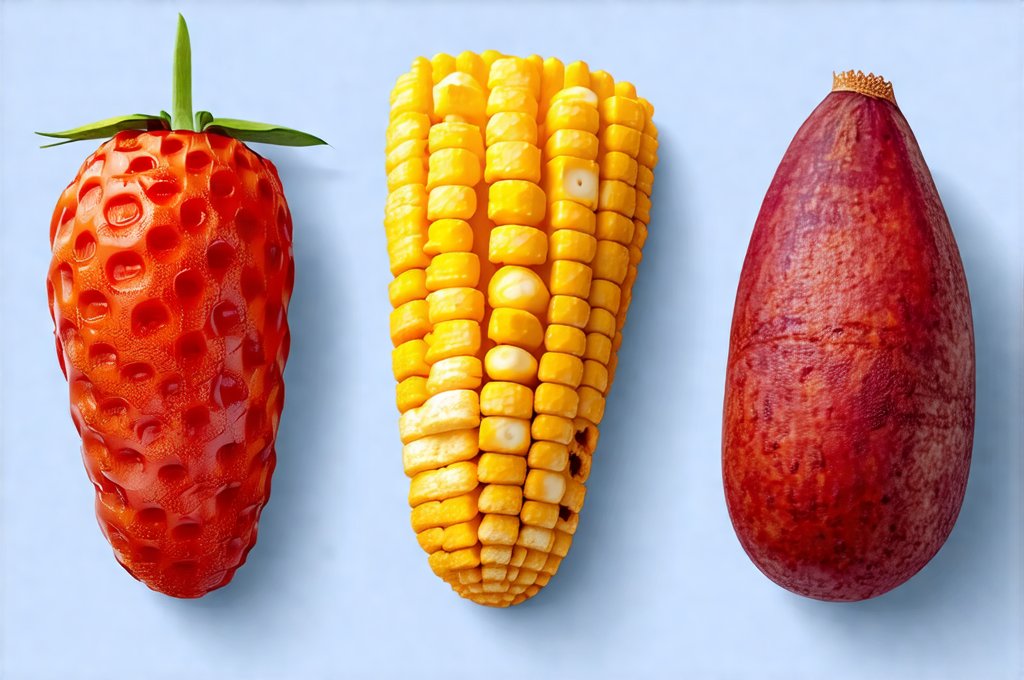Navigating dietary restrictions can feel overwhelming, especially when dealing with conditions like GERD (gastroesophageal reflux disease), bloating, and IBS (irritable bowel syndrome). Many individuals find themselves constantly scrutinizing food labels, eliminating entire food groups, and sacrificing enjoyment just to avoid uncomfortable symptoms. However, a restrictive diet isn’t always the answer; it’s often about smart snacking choices that soothe digestion rather than exacerbate issues. The good news is, delicious and satisfying snacks can absolutely be incorporated into a GERD, bloating, and IBS-friendly lifestyle – you simply need to understand which foods support gut health and minimize irritation.
This article aims to provide a practical guide to easy snack options tailored for those managing these conditions. We’ll explore the underlying reasons why certain foods trigger symptoms, focusing on minimizing common culprits and maximizing soothing alternatives. It’s important to remember that everyone is different – what works wonderfully for one person might not work for another. This isn’t about rigid rules; it’s about empowering you with knowledge to make informed choices and find snacks that genuinely support your well-being, allowing you to enjoy food without fear of discomfort.
Understanding the Triggers
GERD, bloating, and IBS all share a common thread: digestive sensitivity. GERD is often triggered by acidic foods or large meals that increase stomach pressure, leading to heartburn and acid reflux. Bloating can be caused by gas-producing foods, food intolerances, or rapid eating. IBS, on the other hand, is more complex, with symptoms varying greatly depending on the individual’s sensitivity. However, certain food groups are frequently linked to IBS flare-ups, including high-FODMAP (fermentable oligosaccharides, disaccharides, monosaccharides and polyols) foods. These carbohydrates are poorly absorbed in the small intestine, leading to fermentation by gut bacteria and subsequent gas production, bloating, and abdominal discomfort.
Identifying personal triggers is crucial. Keeping a food diary can be incredibly helpful – track what you eat and any associated symptoms. This allows you to pinpoint specific foods that consistently cause problems. Beyond food itself, eating habits play a significant role. Eating too quickly, consuming large portions, and lying down immediately after meals can all contribute to digestive issues. Stress also has a profound impact on digestion, so managing stress levels is an important component of overall gut health. Therefore, snacking isn’t just what you eat but how you eat it. Understanding typical diagnostics can also help pinpoint sensitivities.
Soothing Snack Solutions
When choosing snacks, prioritize foods that are gentle on the stomach and promote healthy digestion. Bland, low-fat options are generally well-tolerated. Think about incorporating foods with anti-inflammatory properties to help calm your gut. For GERD sufferers, avoid highly acidic fruits (citrus, tomatoes), chocolate, caffeine, alcohol, and spicy foods. For IBS, focusing on low-FODMAP alternatives is key. This might mean swapping apples for blueberries or onions for chives. Regarding bloating, reducing carbonated beverages and artificial sweeteners can make a significant difference.
Here are some excellent snack options: – Oatmeal (made with water or lactose-free milk) – a source of soluble fiber that aids digestion. – Rice cakes topped with avocado and a sprinkle of sea salt – provides healthy fats and is easy to digest. – Banana with a tablespoon of almond butter – potassium-rich and soothing for the digestive system. – Plain yogurt (lactose-free if needed) with berries – probiotics support gut health, but be mindful of lactose intolerance. Those looking for more options can explore probiotic-rich snacks. – Small handful of almonds or walnuts – healthy fats and fiber, but consume in moderation to avoid excess fat intake. – Steamed vegetables like carrots or green beans – easy to digest and provide essential nutrients. Remember portion control is vital; even healthy foods can cause discomfort if eaten in large quantities.
Navigating Low-FODMAP Snacking
The low-FODMAP diet, often recommended for IBS management, involves temporarily eliminating certain carbohydrates from the diet to identify sensitivities. It’s best undertaken with guidance from a registered dietitian specializing in gut health. However, understanding the basics can help you make informed snack choices. Foods low in FODMAPs include: – Lactose-free dairy products or alternatives (almond milk, rice milk). – Small portions of certain fruits like bananas, blueberries, strawberries, and oranges. – Vegetables such as carrots, cucumber, spinach, and zucchini. – Gluten-free grains like quinoa, oats (in moderation), and rice.
Foods to avoid (or limit) on a low-FODMAP diet include: – Apples, pears, mangoes, cherries. – Onions, garlic, mushrooms. – Wheat, rye, barley. – Milk, yogurt, ice cream (unless lactose-free). – Honey and high-fructose corn syrup. The Monash University FODMAP app is an invaluable resource for checking the FODMAP content of various foods. It’s important to remember that this diet isn’t meant to be followed long-term; it’s a diagnostic tool to identify triggers, after which you can gradually reintroduce tolerated foods. For those recovering from surgery, post-surgery eating strategies may also be helpful during the reintroduction phase.
Mindful Eating Practices
Even the most gut-friendly snack can cause discomfort if eaten mindlessly. Mindful eating involves paying attention to your body’s hunger and fullness cues, savoring each bite, and avoiding distractions during meals. This practice helps improve digestion and prevents overeating. Here are a few tips: – Sit down to eat, rather than snacking on the go. – Chew your food thoroughly – this aids digestion and allows you to feel fuller faster. – Avoid eating when stressed or emotional – stress can disrupt digestion. – Put your fork down between bites – this encourages slower eating.
- Listen to your body’s signals – stop eating when you’re comfortably full, not stuffed. – Practice gratitude for your food – appreciating your meal can enhance enjoyment and promote mindful consumption. Incorporating these practices into your daily routine can significantly improve your digestive health and reduce the likelihood of uncomfortable symptoms. It’s about creating a positive relationship with food, where you nourish your body without fear or anxiety. If you’re struggling to adapt favorite snacks, mindful eating can make the transition easier.
Hydration & Herbal Support
Staying adequately hydrated is essential for optimal digestion. Water helps move food through the digestive tract and prevents constipation, which can exacerbate bloating and IBS symptoms. Aim to drink at least eight glasses of water per day. Certain herbal teas can also be beneficial. Ginger tea is known for its anti-inflammatory properties and can help soothe an upset stomach. Peppermint tea can relax the muscles in the digestive tract, reducing bloating and gas. Chamomile tea has calming effects that can reduce stress and promote better sleep, which indirectly supports gut health.
However, it’s important to note that some herbal teas may interact with medications or exacerbate certain conditions. For example, peppermint tea can worsen GERD symptoms in some individuals. Always consult with your healthcare provider before incorporating herbal remedies into your routine. Beyond hydration and herbal support, regular physical activity can also promote healthy digestion. Exercise helps stimulate bowel movements and reduces stress levels, contributing to overall gut health. A combination of mindful eating, adequate hydration, gentle exercise, and appropriate snack choices can empower you to take control of your digestive well-being and enjoy a more comfortable life. And remember the importance of gut-safe snacks for on-the-go nourishment.


















